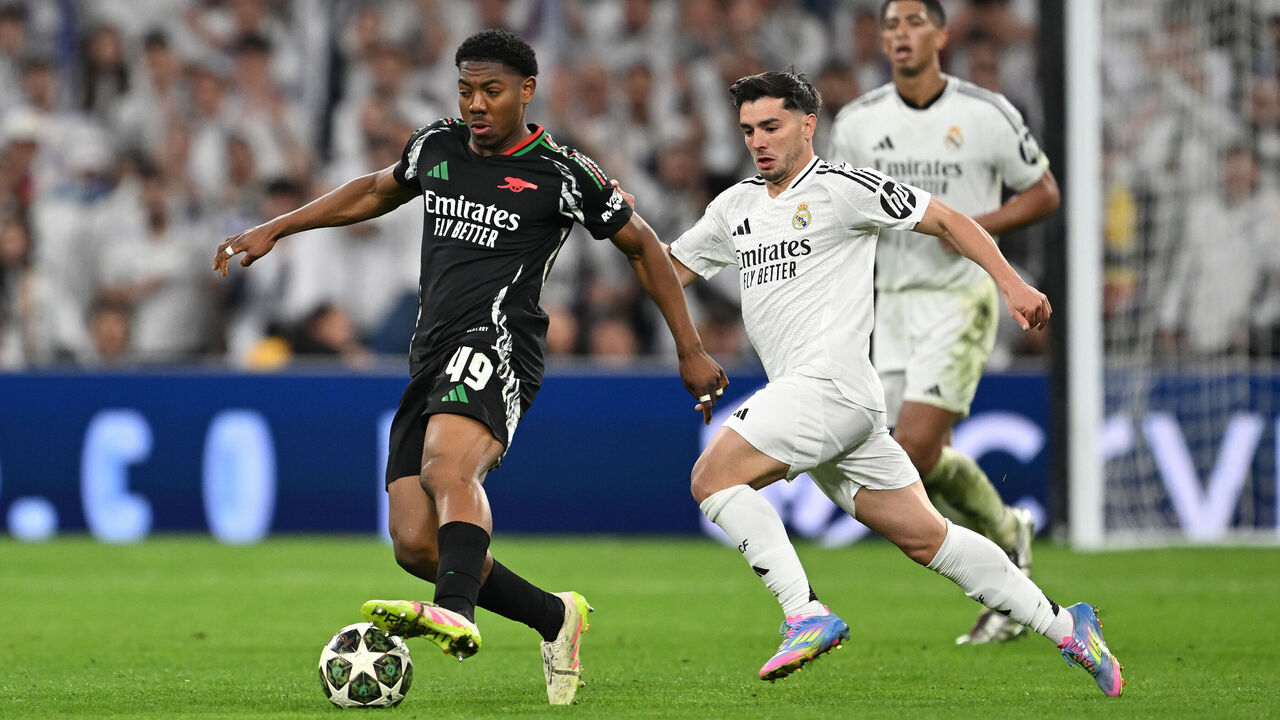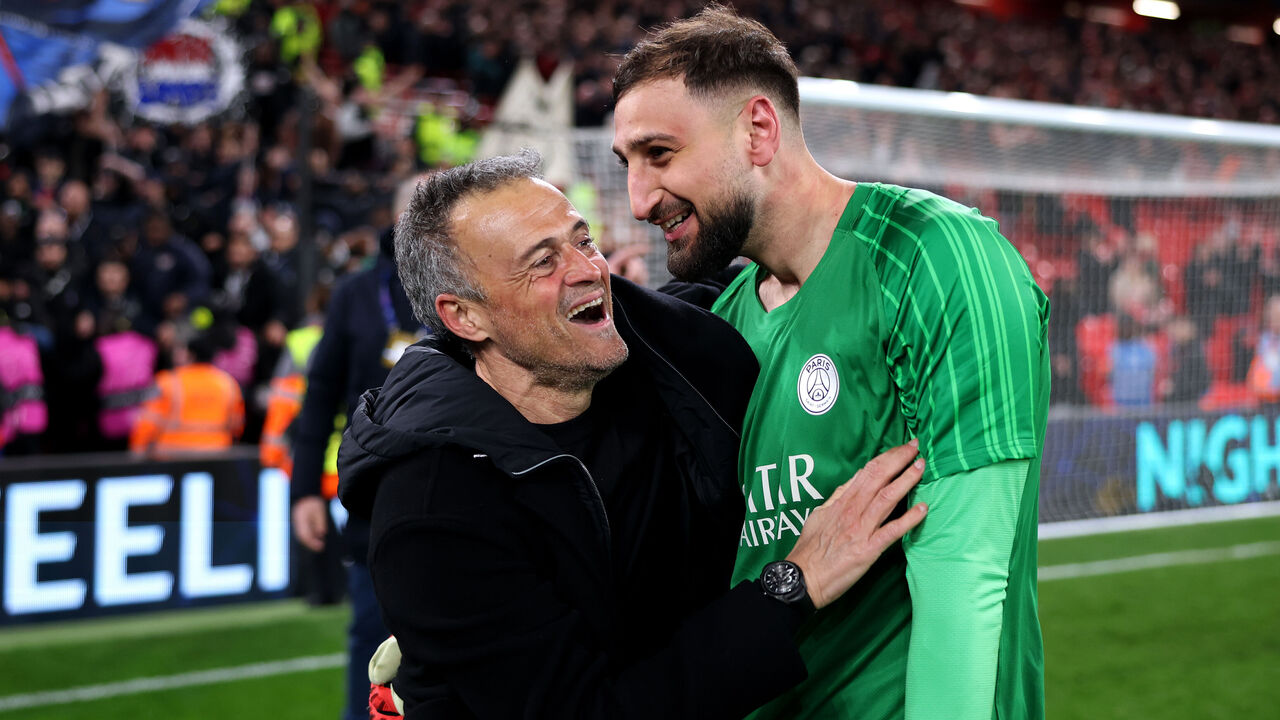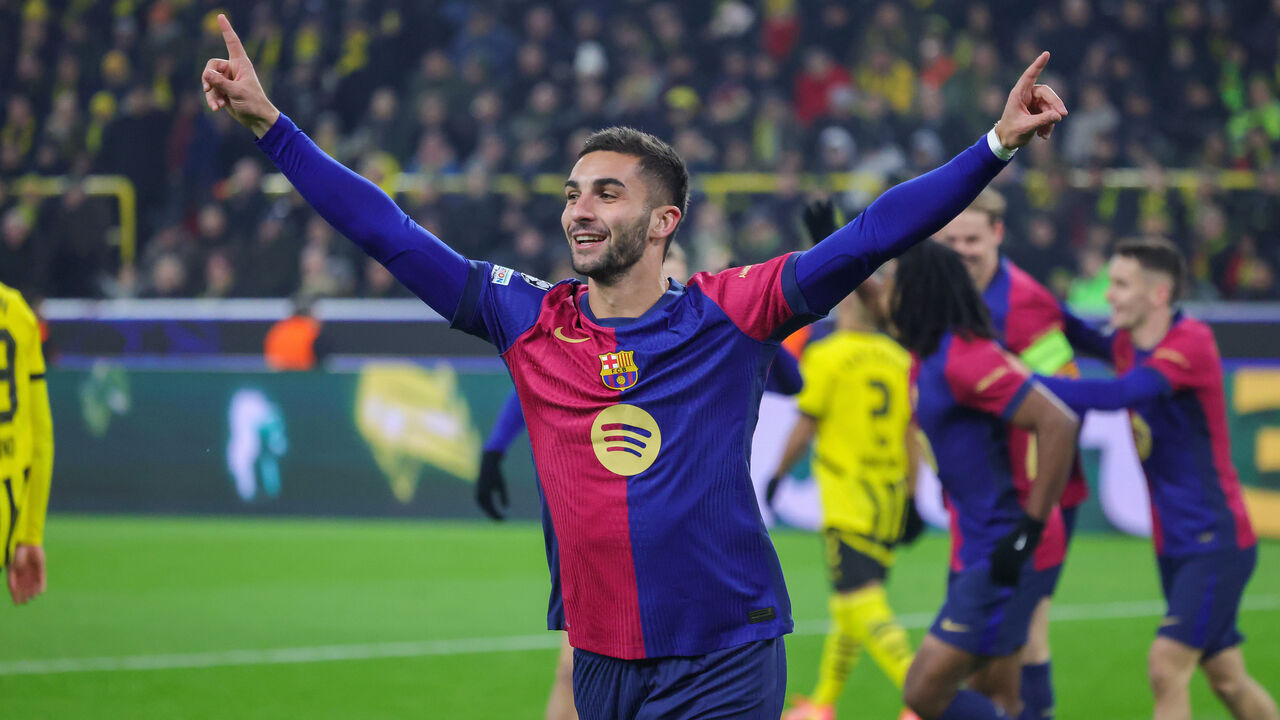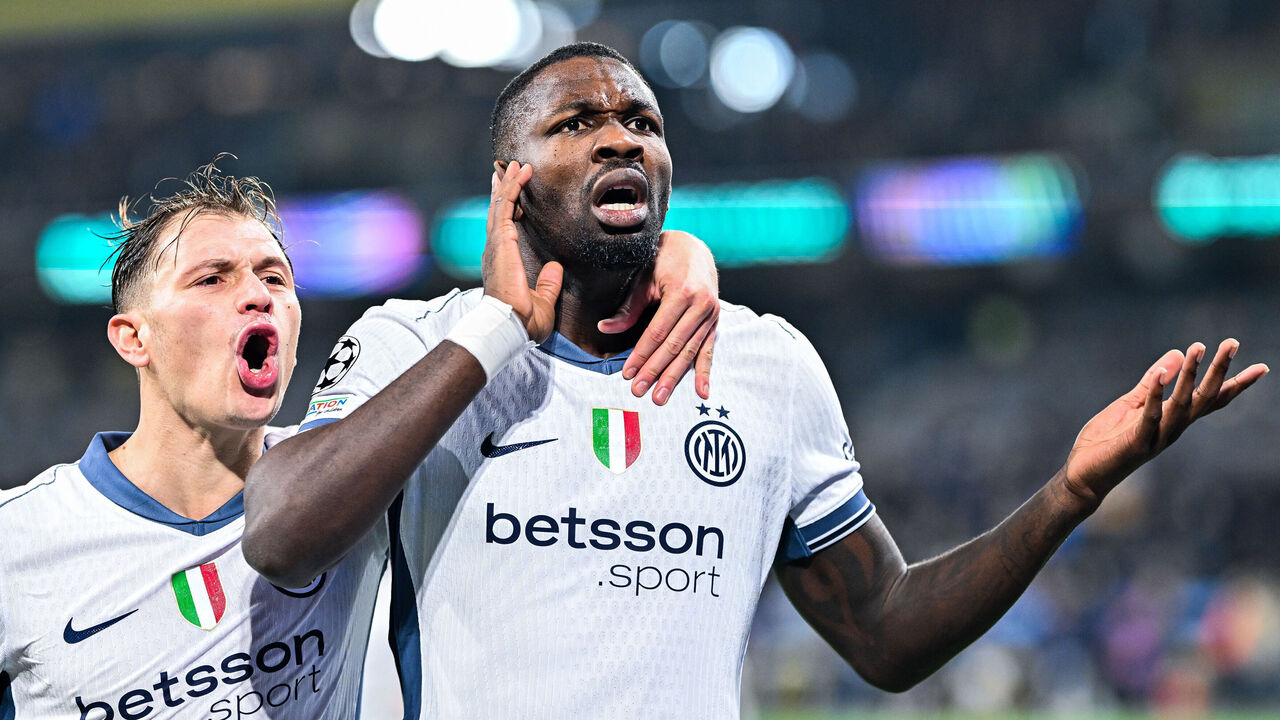X-factors that will decide the Champions League semifinals
After a brief interlude to decompress from the thrilling quarterfinal round, the Champions League returns this week with a pair of attractive and intriguing semifinals. Below, we look at the biggest X-factors that will help determine which teams advance to play for the coveted title.
Arsenal vs. Paris Saint-Germain
First leg: April 29 (Emirates Stadium)
Second leg: May 7 (Parc des Princes)
Arsenal: Myles Lewis-Skelly's adaptability

With Thomas Partey suspended for the first leg in north London and his most obvious deputy, Jorginho, nursing an ailment, Mikel Arteta has a big decision to make. Who will slot in alongside quarterfinal hero Declan Rice and captain Martin Odegaard in central midfield? Mikel Merino, the team's surprisingly effective auxiliary center-forward, is also battling an injury, which complicates matters even more for the Gunners.
One option for Arteta is to restore breakout star Myles Lewis-Skelly to his natural position in midfield. The adaptable 18-year-old has made a seamless transition to left-back this season, filling that hole out of necessity for the injury-ravaged club, but he rose through Arsenal's academy as a midfielder - something that's easy to recognize when seeing the ease with which he tucks inside to receive the ball when his team's in possession. Sliding Lewis-Skelly back into his more familiar spot could be Arteta's best option to combat PSG's polished midfield. He's combative and physically strong enough to outmuscle his opponents, positions his body in clever ways to win duels or fouls in tight areas, and has the burst needed to dribble away from congested areas and flip the field. Against a side that presses vigorously like PSG, those are all vital attributes.
"I will play wherever the manager needs me, and it is important to be versatile. The top players in the world are able to occupy different positions," the teenager explained in a recent interview with Sky Sports. "So, for me, I will do whatever it takes to be in the team."
And if he does start at left-back? Then he'll be equally important trying to shut down whichever of PSG's dazzling wingers he lines up against, not to mention rampaging right-back Achraf Hakimi. If Arsenal are to reach their second Champions League final in club history, Lewis-Skelly will play a pivotal role, one way or another.
PSG: Gianluigi Donnarumma, for better or worse

Donnarumma can be an enigma. He can alternate between jaw-dropping saves and mind-numbing errors, sometimes within the same match. PSG's slick-passing midfield and devastatingly fluid attack have grabbed much of the attention during their run to the semifinals, and with good reason. Ousmane Dembele is putting himself in Ballon d'Or contention, Bradley Barcola and Desire Doue are budding superstars, and Khvicha Kvaratskhelia has been a phenomenal fit since his January arrival. Fabian Ruiz, Vitinha, and Joao Neves, meanwhile, combine to make the game look effortless and beautiful. But without Donnarumma, PSG wouldn't be in the semifinals.
The imposing Italian stood on his head against Liverpool in the round of 16, particularly in the first leg, and then, of course, in the shootout. And despite conceding three goals in the second leg of the quarterfinal versus Aston Villa, he was immense in the latter stages of that thrilling contest, pulling off three huge saves to ensure Villa's furious comeback attempt fell just short.
Like any netminder, the warts in his game are more glaring than any other position on the pitch. His mistakes, inevitably, lead to goals. That was on full display in PSG's 2-0 loss to Arsenal in their league phase meeting in October. He made two errors in that affair, first being beaten to a cross by Kai Havertz and then letting a seeing-eye free-kick from Bukayo Saka travel through the box and into his goal.
Donnarumma's a superlative shot-stopper, but his twitchiness on aerial balls sticks out, especially for someone of his size. Against the set-piece prowess of Arsenal, who have devised clever ways to disrupt the goalkeeper, particularly from corner kicks, Luis Enrique needs his No. 1 to be in full command of his penalty area for 180 minutes.
Barcelona vs. Inter Milan
First leg: April 30 (Estadi Olimpic)
Second leg: May 6 (San Siro)
Barcelona: Ferran Torres and Dani Olmo

Leading scorer Robert Lewandowski will miss the first leg against Inter with a hamstring injury. Barring an expedited return, he's expected to be sidelined for the return fixture as well. His predatory instincts inside the penalty area and clinical finishing will, of course, be missed; you can't simply replace someone who has 40 goals in all competitions on the fly. Lewandowski's connection with Lamine Yamal and Raphinha has been the driving force behind Barcelona's ongoing quadruple chase this season, and his absence gives Inter the opportunity to hone in more obsessively on the two wide attackers without having to worry about one of the most prolific players ever being left one-on-one through the middle.
There are intangibles to consider here, too. Lewandowski, at 36, is one of few veteran voices in a youthful squad that will be going up against Inter's grizzled unit. That element shouldn't be dismissed.
Torres, more mobile than his elder teammate, is the most likely option to continue starting up front in Lewandowski's absence. The Spaniard does give Barcelona more verticality in attack, as evidenced by the goal he scored in the Copa del Rey final against Real Madrid this past weekend, when he raced behind the defense and rounded Thibaut Courtois after being picked out by a ball over the top from Yamal. Lewandowski, in all likelihood, wouldn't have reached that same pass, and Yamal may not have even attempted it. Will openings like that even be available against Inter, who will be infinitely more compact and organized defensively than Real Madrid? Perhaps not. Olmo, meanwhile, has had some success operating as a false nine this season, though he always looks more comfortable in an attacking midfield role.
How aggressive Flick chooses to be with his lineup will be fascinating. Will he play both Torres and Olmo in the first leg, as he did against Madrid with a 4-2-3-1 formation? That would, in theory, give his team more creativity, but could come at the cost of being outnumbered and ceding some control to Inter's three-man midfield. Inter haven't lost a Champions League match at home since 2022, so Flick could decide that flying out of the gate in Montjuic and building a healthy first-leg lead is paramount before heading to the San Siro.
Inter: Marcus Thuram's thigh

Coming out of the quarterfinals, Inter were chasing a treble of trophies and looked like the savvy choice to win the Champions League. Now they're in a tailspin. Since eliminating Bayern Munich in the last round of the competition just a couple weeks ago, the Nerazzurri have lost three consecutive games by a combined scoreline of 5-0. They've been knocked out of the Coppa Italia - by rivals AC Milan, no less - and relinquished their lead atop Serie A. Things change quickly. There are several contributing factors, but the most glaring has been Thuram's absence. It's no coincidence that Inter's attack has fallen off a cliff with the dynamic Frenchman sidelined for the last three matches with a thigh issue.
Captain Lautaro Martinez has scored in each of his last five Champions League contests, but, without his first-choice strike partner, the Argentine is less threatening and effective. The drop-off from Thuram to backup options like Marko Arnautovic, Mehdi Taremi, and Joaquin Correa, is massive; Thuram has outscored the three of them combined this season, and his instinctual combination play with Martinez is a pillar of Inter's attack. Against Barcelona, in particular, Thuram profiles as the ideal player to take advantage of Hansi Flick's high defensive line. Without him, Inter's wicked counterattack loses much of its pace and doesn't carry nearly the same threat. Even if he plays at less than 100% fitness, his return would be a big boost for the Italian club.
Simone Inzaghi's team doesn't light up the scoreboard to begin with. Inter rely instead on the stingiest backline in the tournament, which has conceded just five goals, to win games. Center-back Alessandro Bastoni, who will be tasked with trying to lock down Yamal while also contributing to his team's buildup play, will play a huge role in the tie and could've easily been the choice here.
But if Thuram isn't available, the Italian defender's contributions could be moot. Against a dynamic Barcelona outfit that creates chances at will, Inter will likely need multiple goals to advance to the final. As they've showed over the last week, just scoring once without him has been challenging enough.
HEADLINES
- Arteta puts friendship with Luis Enrique on hold to chase Arsenal's UCL dream
- Permutations in Europe: What's still at stake in final weeks of season?
- Feisty Arteta urges Arsenal fans to 'bring boots' to PSG clash
- Luis Enrique: PSG have improved since October loss to Arsenal
- Latest transfer news and rumors: Man United's Cunha deal advancing